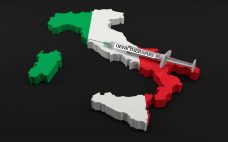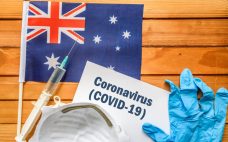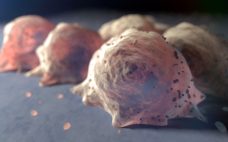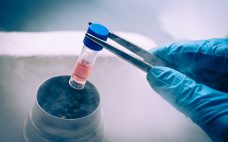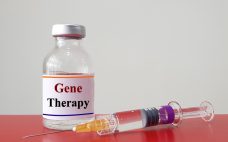The $150 million facility in The Netherlands is now fully operational and will produce CAR-T therapy Yescarta for up to 4,000 patients per year, says Kite. In 2018, Gilead Sciences, fresh from its $11.9 billion acquisition of Kite Pharma, announced plans to open a European facility to manufacture chimeric antigen receptor (CAR) T-cell therapies. Today the firm has announced the 204,514 square-foot site ‚Äď the largest in Kite‚Äôs network ‚Äď has received approval from the European Medicine Agency (EMA) for…

Therapeutic Class
Rigenerand launches CDMO biz after gene therapy facility gains approval
Regulatory approval to make gene therapies from its site in Modena, Italy has enabled biotech Rigenerand SRL to enter the advanced therapy CDMO space. Rigenerand announced last week that the Italian Medicine Authority (AIFA) has granted authorization to produce gene therapy medicinal products for clinical purposes from its site in Modena. This will allow the advancement of the firm‚Äôs lead candidate RR001 ‚Äď an autologous gene therapy being investigated to treat pancreatic cancer ‚Äď into Phase I trials but will…
CSL to make ‚Äėmolecular clamp‚Äô enabled COVID-19 vaccine for University of Queensland
A part-CEPI funded COVID-19 vaccine will be made by CSL at its site in Melbourne, Australia and will incorporate the MF59 adjuvant made by CSL subsidiary Seqirus. In January, the University of Queensland (UQ), Australia received funding of up to $10.6 million from the Coalition for Epidemic Preparedness Innovations (CEPI) to help develop its vaccine against COVID-19, caused by the novel coronavirus (SARS-CoV-2). The candidate is based on proprietary the University‚Äôs proprietary ‚Äúmolecular clamp‚ÄĚ vaccine platform, a technology that aims…
Mesoblast planning capacity hike if GVHD candidate is effective against COVID-19
Mesoblast says extra capacity will be needed to scale-up production of its GVHD candidate Ryoncil for use against COVID-19. When Australia‚Äôs Mesoblast raised $90m last month it said most of the money would be used to scale up production of its graft versus host disease (GVHD) candidate Ryoncil (remestemcel-L). CEO Silviu Itescu expanded on this last week, telling analysts the funds would be used to increase production of remestemcel-L in light of the coronavirus pandemic. ‚ÄúThe proceeds from this offering…
Immobilize growth factors to cut cell therapy COGS say researchers
Cell therapy manufacturing costs could be reduced dramatically using immobilized growth factors in culture according to research. Industry interest in cell therapies has increased significantly in recent years. According to a report by US industry group PhRMA, there are 362 cell and gene therapies in clinical development, up from 289 in 2018. The surge in cell therapies entering the clinic is the ‚Äúresult of years of pioneering research by America‚Äôs biopharmaceutical research companies,‚ÄĚ according to PhRMA. It also reflects the…
Oxford Biomedica to make AstraZeneca’s coronavirus vaccine for trials
Oxford Biomedica will make trial supplies of AZD1222 ‚Äď AstraZeneca‚Äôs SARS-CoV-2 candidate vaccine ‚Äď under a deal agreed this week. The cell and gene therapy contractor will make the adenovirus vector-based vaccine at its recently established manufacturing facility ‚Äď known as Oxbox ‚Äď at the Oxford Science Park in Oxford, UK. The agreement ‚Äď which is for one year ‚Äď will see Oxford Biomedica supply AstraZeneca with multiple batches of vaccine, the majority of which are expected to be produced…
Merck exercises option to use Vaxxas vaccine delivery patch
Merck & Co. will use Vaxxas‚Äô delivery patch technology in one of its vaccine candidate development programs. Brisbane, Australia based Vaxxas announced the agreement today, explaining the US drug firm exercised an option under a co-development accord signed in 2012. Vaxxas CEO David Hoey told us the technology ‚Äď known as the High Density Microarray Patch (HD-MAP) platform ‚Äď ‚Äúuses an ultra-high density array of very short projections applied briefly to the skin to rapidly deliver vaccine to the abundant…
With $60m in hand, Gamida looks to build out cell therapy infrastructure
Gamida Cell will initiate a BLA submission for lead cell therapy omidubicel later this year and grow inhouse manufacturing capabilities to support production of cancer candidate GDA-201. Israeli cell therapy company Gamida Cell raised $60 million (‚ā¨55 million) last week through a public share offering. The money will be used to support the approval application and manufacturing capabilities of its cell therapy products, the firm said on an investor call last week. Lead candidate omidubicel ‚Äď formerly known as NiCord…
FDA demands more manufacturing info to review ide-cel, says Bluebird
The US FDA has rejected Bluebird Bio‚Äôs Biologics license application (BLA) for ide-cel and asked for more details of how the candidate blood cancer therapy is made. Bluebird announced receipt of a ‚Äúrefuse to file letter‚ÄĚ (RTF) in an SEC filing on Wednesday. The firm said the US Food and Drug Administration (FDA) asked for supplemental information on validation and control processes used in lentiviral vector and drug product manufacturing processes for Idecabtagene vicleucel (ide-cel), an investigational chimeric antigen receptor…
Thermo Fisher doubling viral vector capacity with $180m MA plant
Thermo Fisher will bolster its viral vector manufacturing business through the acquisition of a site in Plainville, Massachusetts. Since Thermo Fisher entered the gene therapy space by acquiring contract development and manufacturing organization (CDMO) Brammer Bio in March 2019, the firm has rapidly invested in its capabilities to service the advanced therapy space. This includes an extra $125 million investment in Brammer announced weeks after buying the CDMO, and expansions at sites in Alachua, Florida and Lexington, Massachusetts. The latest…


